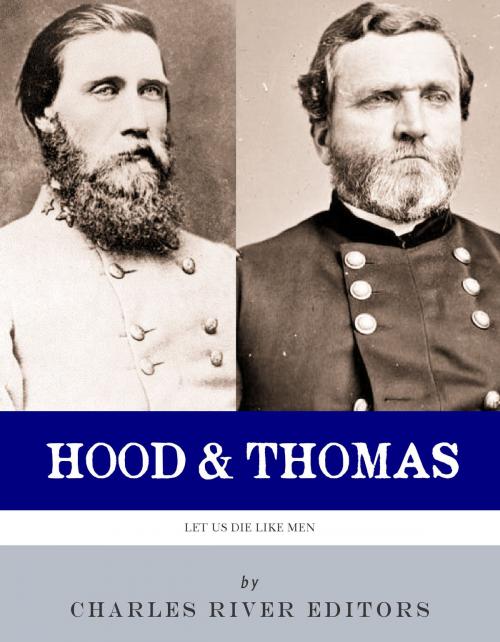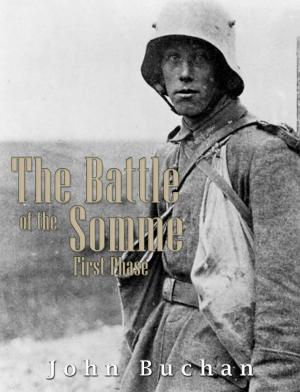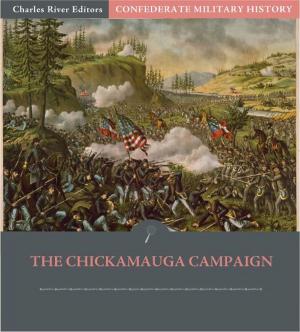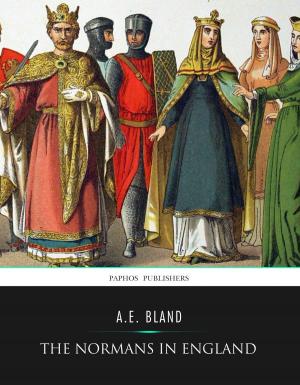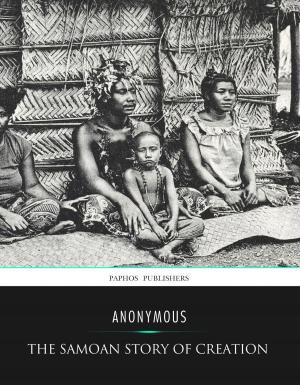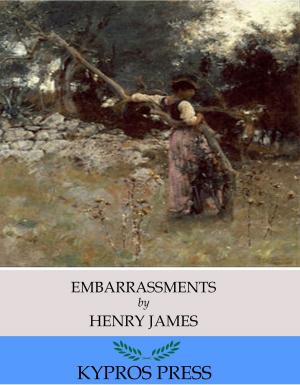Let Us Die Like Men: The Lives and Legacies of George H. Thomas and John Bell Hood
Nonfiction, History, Americas, United States, Civil War Period (1850-1877), Biography & Memoir, Historical| Author: | Charles River Editors | ISBN: | 9781475321234 |
| Publisher: | Charles River Editors | Publication: | January 15, 2013 |
| Imprint: | Language: | English |
| Author: | Charles River Editors |
| ISBN: | 9781475321234 |
| Publisher: | Charles River Editors |
| Publication: | January 15, 2013 |
| Imprint: | |
| Language: | English |
*Includes pictures of Hood, Thomas, and important people, places, and events.*Includes maps of major battles they fought in.*Includes quotes from Hood's memoir describing his fighting in major battles like Antietam and Gettysburg.*Discusses the relationship between Thomas and Hood. The lives and legacies of George H. Thomas and John Bell Hood have been tied to each other for nearly 150 years, and no two Civil War generals could provide a more stark juxtaposition. Hood was an adopted son and a popular figure in the South, where he was widely viewed as both gallant and chivalrous (Mary Chesnut wrote in her famous diary that he was a beau-ideal of the wild Texans). Thomas, a Native Virginian, was disowned by his own family and reviled throughout the South for staying with the Union. The intimidating Hood began to make a name for himself as a brigade commander in the Army of Northern Virginia under new commander Robert E. Lee during the Seven Days Battles in 1862, after which he was promoted to division command. For the next several campaigns, he distinguished himself while leading a division under General James Longstreets I Corps., fighting at places like Antietam, Gettysburg and Chickamauga. Ultimately, Hood's reputation would be undone by his former artillery instructor and antebellum superior: George H. Thomas. Thomas scored almost inconceivable successes at Missionary Ridge, Franklin, and Nashville, and he also skillfully fought at Perryville, Stones River, and in Shermans Atlanta Campaign. Despite all of those successes, however, Thomas is best remembered as The Rock of Chickamauga for an impromptu defensive stand on Horseshoe Ridge that prevented the destruction of the Union army and allowed it to successfully retreat to Chattanooga. Franklin and Nashville would come at Hood's expense. In 1864, Joseph E. Johnston continued to move in the face of Shermans armies back toward Atlanta, eventually leading to Hoods promotion to command of the Army of Tennessee. Hood aggressively led a series of offensive attacks, failing to dislodge Sherman and only damaging his own army. Sherman eventually took Atlanta anyway. Hoods leadership only got worse during the final months of 1864, culminating in the Franklin-Nashville campaign in which he ordered a massive frontal attack at the Battle of Franklin that left many of his top officers, like Patrick Cleburne, dead on the field. Civil War historian Wiley Ford noted of the campaign, Never had there been such an overwhelming victory during the Civil Warindeed, never in American military history. After his disgraceful finish, Hood managed to write an account of his service in the Civil War, most of which sought to defend his record while pinning the blame for the Atlanta campaign on General Johnston. Conversely, Thomas eschewed self-promotion and aggrandizement, burning his papers and thus letting his record (and others) determine his legacy. Let Us Die Like Men chronicles the amazing lives and careers of the two commanding generals who fought together before they fought against each other, and it analyzes how the two generals ultimately determined each other's legacy in 1864. Along with pictures, you will learn about Hood and Thomas like you never have before.
*Includes pictures of Hood, Thomas, and important people, places, and events.*Includes maps of major battles they fought in.*Includes quotes from Hood's memoir describing his fighting in major battles like Antietam and Gettysburg.*Discusses the relationship between Thomas and Hood. The lives and legacies of George H. Thomas and John Bell Hood have been tied to each other for nearly 150 years, and no two Civil War generals could provide a more stark juxtaposition. Hood was an adopted son and a popular figure in the South, where he was widely viewed as both gallant and chivalrous (Mary Chesnut wrote in her famous diary that he was a beau-ideal of the wild Texans). Thomas, a Native Virginian, was disowned by his own family and reviled throughout the South for staying with the Union. The intimidating Hood began to make a name for himself as a brigade commander in the Army of Northern Virginia under new commander Robert E. Lee during the Seven Days Battles in 1862, after which he was promoted to division command. For the next several campaigns, he distinguished himself while leading a division under General James Longstreets I Corps., fighting at places like Antietam, Gettysburg and Chickamauga. Ultimately, Hood's reputation would be undone by his former artillery instructor and antebellum superior: George H. Thomas. Thomas scored almost inconceivable successes at Missionary Ridge, Franklin, and Nashville, and he also skillfully fought at Perryville, Stones River, and in Shermans Atlanta Campaign. Despite all of those successes, however, Thomas is best remembered as The Rock of Chickamauga for an impromptu defensive stand on Horseshoe Ridge that prevented the destruction of the Union army and allowed it to successfully retreat to Chattanooga. Franklin and Nashville would come at Hood's expense. In 1864, Joseph E. Johnston continued to move in the face of Shermans armies back toward Atlanta, eventually leading to Hoods promotion to command of the Army of Tennessee. Hood aggressively led a series of offensive attacks, failing to dislodge Sherman and only damaging his own army. Sherman eventually took Atlanta anyway. Hoods leadership only got worse during the final months of 1864, culminating in the Franklin-Nashville campaign in which he ordered a massive frontal attack at the Battle of Franklin that left many of his top officers, like Patrick Cleburne, dead on the field. Civil War historian Wiley Ford noted of the campaign, Never had there been such an overwhelming victory during the Civil Warindeed, never in American military history. After his disgraceful finish, Hood managed to write an account of his service in the Civil War, most of which sought to defend his record while pinning the blame for the Atlanta campaign on General Johnston. Conversely, Thomas eschewed self-promotion and aggrandizement, burning his papers and thus letting his record (and others) determine his legacy. Let Us Die Like Men chronicles the amazing lives and careers of the two commanding generals who fought together before they fought against each other, and it analyzes how the two generals ultimately determined each other's legacy in 1864. Along with pictures, you will learn about Hood and Thomas like you never have before.
